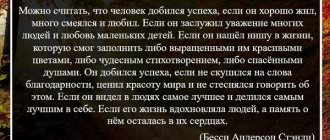Author of the material:
Igor Lyadsky
Geneticist, writer, business coach, Doctor of Philosophy (PhD).
In the real world, the question about the benefits of realism seems rather strange. At first glance, the answer seems obvious. Of course, this is a very important personality quality. Such people evaluate life more objectively and, accordingly, are better oriented in it. But truth, as a rule, avoids extremes. A realist, of course, has advantages over an idealist, but he is not immune from disadvantages. So what are its pros and cons? Is it difficult for people with this type of personality to live? Is it worth raising your child to be a realist? Let's talk about this topic without unnecessary idealism.
This is a realist
People are accustomed to dividing each other into optimists and pessimists. Therefore, not everyone knows who a realist is. There are several definitions, for example, psychological, philosophical and others. Simple common sense, subjectivity of opinion and a number of other positive and negative qualities determine this phenomenon.
Note! Realism is often compared with idealism, asking which of these human characteristics is better.
However, one cannot compare certain character traits, since they make a personality out of an individual. In any case, a person has his own advantages and disadvantages, regardless of what qualities he possesses.
Philosophy about realism
The definition of realism in philosophy has no clear boundaries:
- According to the direction of scholasticism, this term denotes real-life concepts: man, tree, house.
- Realism is contrasted with mysticism (emotional worldview).
- English philosophy gives this meaning certainty, believing that realistic concepts are the truth, the rest is false metaphysics.
- The philosophy of the 20th century defines this term as the correspondence of theories to facts.
Europeans gave realism an evaluative character, meaning "good", although the rating varied depending on the opinion of the person evaluating it. In addition, “realism” described non-European philosophical concepts, but from a European point of view.
Interpretation in psychology
In psychology, a lot of information is devoted to what a realist means. The term has a clear definition, which states that a realist is a person who evaluates events and phenomena occurring around him subjectively, that is, including personal opinion and attitude. It is believed that a person who has predominant realism as a character trait is better oriented in life situations. Such people do not engage in self-deception, do not harbor illusions, and are accurate in their judgments.
Note! Realism has more or less clear boundaries of character. It is not necessary for a person inclined to realism to be stern and impartial. There are those who rely on facts and logic. There are also representatives who are characterized by skepticism.
There is a fine line with skepticism
Philosophy about realism
The concept in its etymology goes back to the term “realism”.
A direction in the philosophical understanding of reality that recognizes the existence of a universal reality, regardless of the process of cognition and human awareness of them. Realists in philosophy are followers of natural scientific approaches to the study of nature. Derived from the Latin word realis - “real”, “real”.
The other extreme is nominalism, or the position of skeptical empiricism, whose representatives claim that concepts are derivatives of our spirit, that by definition there are no concepts in things. Nominalists and realists during the period of scholasticism later provided the basis for a materialistic and idealistic interpretation of reality.
The difference between a realist and an idealist
Learned helplessness - what is this condition?
It is worth noting who an idealist is and his differences from a realist. An idealist has a habit of embellishing certain events. Having met a person, he will give him non-existent positive character traits, excessive kindness, care and other qualities. A realist would be more likely to wait for evidence of such positive characteristics of a new acquaintance.
People with such contradictory character traits may have similar concepts, for example, about lying - lying is bad. However, realists understand that sometimes it is impossible to do without deception, when, like idealists, they are confident that lying is always a bad option.
To summarize, the idealist believes in the idea itself. A realist will believe in it only when he sees the results.
Realism and romance in literature and art
Realism as a direction in art and visual creativity. He considers his goal to be the reproduction of the surrounding reality as close as possible to its natural beginning. The more precise, the higher the value of the masterpiece.
Despite the photographic nature of the effect, in this direction one can always read the position of the author: the place, the conditions of “lighting”, the position and individuality of the author. It is in this part that the work becomes a masterpiece of art. A realist is a master of presenting material.
Romanticism, due to the illusory nature of reality, at the cost of an ideal vision, achieves value precisely in the falsity of the perception of the environment. But this untruth reveals reality as an ideal possibility of “being.” This is the essence of the development of the artistic form of romanticism and its value. Therefore, it can be said that both the realist and the romantic bring value through their level of personal mastery in the process of comprehending the real world.
Types of realists
Cruelty - what is it?
People with a realistic personality type have the traits of an optimist or a pessimist. Much depends on the life experience of one or another representative of this character trait.
Note! We can say about such a person that he sees the world around him the way he wants to see it, despite his optimism or pessimism.
Individuals with this characteristic can be divided into 3 types:
- Naive. Based on logic, facts, common sense.
- Scientific. Has a reasonable belief about some fact, along with a personal opinion.
- Critical. Closer to the idealist, since he admits the idea that some ideas may be erroneous.
How to recognize a realist
Object of conflict - what is it?
A realist is a person who is confident in himself, has an unshakable opinion, he knows what he wants and how to get it. In the process of communication, he does not use expressions like “maybe”, “probably”, he allows himself to inform others about his capabilities regarding this or that phenomenon, excluding unnecessary fantasies and speculation.
The questions of who a woman realist is and what a man realist is require special attention.
Straightforwardness, rigor, loyalty and responsibility are the traits of a realist. Sometimes she is overly serious, but this makes her an irreplaceable, sympathetic friend. Men of the same character are usually pragmatists, they have developed strategy and practicality. They know the value of actions and things, the main thing is that they are not afraid of responsibility.
Responsibility as a positive quality
The opposite of a realist
Upon first examination of the content, it seems that it is the realist who has reliable consciousness about the world around him. It is realism that holds the truth in the history of the development of creativity. Is it so? And in that case, the opposite direction to realism - is this the road to untruth? Misconception in relation to the real state of affairs?
An idealist is a person who replaces reality with some personal ideal idea of it. The romantic and the realist in artistic creativity symbolize two opposite principles. A realist is a person of everyday life, standing firmly on his feet, who knows the value of things. Some image of a pragmatist.
Is it good or bad to be realistic?
There is no clear answer to this question; we can only highlight the positive and negative qualities of this characteristic. The advantages include a high level of responsibility. A person is capable of leadership because he is not afraid to make decisions. He is able to harmoniously establish life and career.
There are some shortcomings, including down-to-earthness, inability, and reluctance to dream or give free rein to the imagination. Not many people like to communicate with such a laconic interlocutor, from whom they have to forcefully extract information. In addition, realists are considered to be conservative. Abrupt changes are alien to them, incl. openings, relocations. They might be called boring.
Meaning of the word realist
Some of his roles were taken on his shoulders and carried out with powerful talent, full of feeling, cordiality, expressiveness and truth - the idealist Melnikov (Ruslan, the miller); others were taken, raised and brilliantly displayed before us even until the last day, with all the power of originality and talent - the realist Stravinsky (Farlaf, Varlaam, Saint-Brie in The Huguenots, Falstaff in The Witches of Windsor, the robber Giacomo in Fra Diavolo ", Kaspar in Freischutz); finally, he took on third roles and, perhaps surpassing all others with his great, versatile talent, presented in a unique new light the latest talented young Russian artist - an idealist and a realist together, Chaliapin (his greatest chef d'oeuvre Ivan the Terrible in "The Woman of Pskov") .
As a result, realism has become a very heterogeneous philosophical movement, since it is quite obvious that a realist about abstract objects and a realist about things in the external world can be irreconcilable opponents.
But if the story “The Catcher in the Rye,” written in a realistic manner, caused (and continues, as we see, to cause) controversy about the ideological affiliation of its hero, then all of Salinger’s subsequent works—the collection “Nine Stories” (1953) and the stories about Glass ( 1955–1965) - fuel discussions about the writer’s work (whether he is a realist or a modernist, a religious mystic with a strong attraction to realism, or a decadent), among other things, also because they are replete with many “dark places”, mysterious episodes, symbols, allusions and signs that do not lend themselves to logical interpretation at first glance.
Long ago, regarding one scene in the novel “War and Peace” (the meeting, mutual forgiveness of two mortally wounded rivals and the feeling of Christian love that suddenly overshadowed them), then we also expressed the opinion [1] that if Count Tolstoy is a realist, then in It undoubtedly contains the ability to express in a strictly realistic form the most elusive, subtle, most sublime, precisely Christian movements of the soul, to give them, so to speak, artistic, equally subtle flesh and to influence the reader’s soul with them.
I am a realist, and if there is something vague in me for a realist, then it is romance, but the romance is not of the old gentle and home-loving way of life, but the most real earthly one...
And vice versa, natural realists, talented writers of everyday life (a gift, by the way, not so common) began to master the techniques of “intellectual writing.” In today's literature, an orientation towards a combination of seemingly incompatible, say, fantasy and hard realism, “advanced aesthetics” and sharp sociality, ancient motifs with the problems of modern life, etc. Andrey Volos, a “realist”, a wonderful storyteller and a gifted novelist (remember the novel “Real Estate”), in the novel “Animator” makes an attempt to combine traditional socio-psychological prose with fantasy poetics. An animator is a person who is able to read the consciousness of a recently deceased person and thereby “light the fire of his soul” in a special flask.
Where articles about Chagall appear in reputable monographs, confusion begins in assessments: now he is a realist, now a surrealist, now even an abstractionist.
By nature a sober and clear realist, Tolstoy is a regular contributor to decadent publications; a democrat, a worker who earns his daily bread through hard work - he plays the role of an old-time local gentleman; a great artist looking for a great theme - he composes stylized vaudevilles.
A metaphysical realist with an obvious predilection for extremely condensed imagery, Montale managed to create his own poetic language through the superposition of what he called "aulico" - courtly - on the "prosaic"; a language that could also be defined as amaro stile nuovo (as opposed to the Dantean formula that reigned in Italian poetry for more than six centuries).
Features of communication with a realist
Having discovered that the interlocutor turned out to be a realist, you should not think that there should be a special attitude towards him. There is no point in arguing with such a person; you cannot impose your point of view on him if it does not coincide with the worldview of this realist. The main thing is not to burden him with empty talk. However, in close relationships, realists are trusting and value mutual understanding and comfort.
You should not expect from him all sorts of dramatic scenes with a showdown, as well as pleasant sudden surprises. This is a stable, constant and reliable person.
How to raise a realistic child
Realists are not born. This quality is acquired over time and with experience. Although this trait can be cultivated from childhood, it should be observed in moderation. It is important for a child to develop harmoniously; fantasy is an integral stage of childhood and subsequent development. Thus, observing excessive idealism, children are gently lowered “from heaven to earth.”
There is a lot of debate about who this realist is, what kind of person he is. Some people consider such people to be boring and cold, unable to show emotions. At the same time, they are worthy leaders who confidently pursue goals. However, one cannot be so critical of realists, since they always have mixed character traits; their shortcomings are usually compensated for by other advantages.
Signs of realism in art
Realism is an extremely broad trend in world culture; works made in this style are often impossible to fit into any specific framework, but still highlight a number of characteristic features :
- truthfulness in depicting life;
- artistic images correspond to real phenomena of reality;
- rejection of any ideals and models;
- through turning to reality, a person learns about the world around him and himself;
- despite tragic conflicts, the art of realism is life-affirming;
- Realism is important to the social context; it seeks and finds new vectors for the development of social and psychological relations in society.











